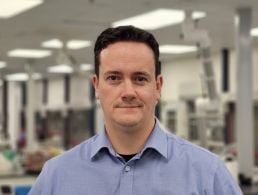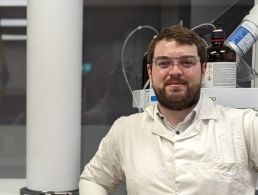Henkel’s Dr Andrea Sättler discusses her own work in R&D and a new award that aims to recognise outstanding women in science.
While the science space has progressed for women over the years, there is still a long way to go – especially for women working in research.
One initiative from Henkel to help in this area is the Martha Schwarzkopf Award for Women in Science. With a prize of €10,000, it is open to all women researchers in Europe who have completed a master’s degree in natural sciences, medicine or computer sciences and whose field of work is hair research or other related research fields.
The award was created by Dr Andrea Sättler and her team. Sättler holds a PhD in natural sciences from the Heinrich Heine University in Düsseldorf and currently works as corporate director at Henkel Beauty Care in Germany.
She told SiliconRepublic.com about her career in research and why she set up the Martha Schwarzkopf Award for women working in science.
‘Women researchers are underrepresented, especially in higher management’
– DR ANDREA SÄTTLER
Tell me a bit about the work that you do at Henkel.
Currently, I manage a global team of scientists, technicians and hair experts within Henkel Beauty Care R&D, who research technical consumer needs and evaluate our technologies in hair colouration, care, styling and body care.
Our job consists of different key elements. We ask consumers in bathroom-like environments to use prototype products and observe what they like, dislike or miss. Based on that, we generate consumer insights and translate those for our product design groups so that they can consider these for improved products or disruptive technology development.
We also generate insights for our stylist clients in our professional hair business by testing products with hair stylists in our hair test salon.
We test prototype products in clinical studies and hair test salons with volunteers and in biophysical studies on hair tresses for their efficacy as well as skin and scalp compatibility.
In addition to these research activities, I am currently building our R&D Academy to promote knowledge-sharing and professionalise collaborations internally and externally.
What do you most enjoy about your job?
There are many aspects that I enjoy about my job. If I had to break it down to one, I would say it’s working closely together with consumers, clients and our own researchers to constantly learn about new trends, habits and needs in the area of personal and hair care.
It helps us to understand the effects of formulations and ingredients onto skin, scalp and hair and how they contribute to wellbeing and health. Continuously optimising our products for the good of our consumers and clients – that’s something I’m passionate about.
What were you most surprised to learn was important in your role as a researcher?
I think, especially in R&D, good communication on complex scientific topics is key, so that all members of a project and also all management stakeholders understand the impact and consequences of the research results.
Are there any misconceptions about working in R&D in beauty care?
Some people might assume that beauty care products don’t need to have real efficacy. This is definitely not correct. All product claims must be tested in the laboratory and together with consumers.
The tests need to fulfil high scientific standards and many interdisciplinary trained scientists are working together to achieve effective and safe formulations.
Why did you and your team set up the Martha Schwarzkopf Award?
The award is a tribute to Martha Schwarzkopf, who was one of the first women in Germany to lead a company and also found the Institute for Hair Research.
Today, Schwarzkopf is Henkel Beauty Care’s largest brand. All of the brand’s technical innovations build on the tradition of the Schwarzkopf Hair Research Institute, which operates research and development laboratories, hair test salons and academies around the world.
The award commemorates Martha’s entrepreneurial and innovative spirit as well as the empathy with which she guided both the company and the Schwarzkopf hair research centre.
Within our R&D Academy, we see that the success of our research projects depends on a diverse and interdisciplinary team consisting of all genders, cultural and technical backgrounds providing differentiated approaches to our research targets.
However, female researchers are still underrepresented especially in higher management levels within R&D. We therefore launched the Martha Schwarzkopf Award to recognise and value outstanding female scientists, who focus on understanding hair and fibres as well as scalp and skin.
It is our ambition to support and encourage them to continue their journey together with us on creating even more beautiful hair products.
What are some of the biggest challenges facing women working in research?
In my personal experience, female researchers often need to work harder to be heard with their ideas and results than their male colleagues.
This might be due to a kind of perfectionism, where women want to achieve all results before they dare to make a proposal. Many times, women feel that they must be an expert on a topic to speak up.
However, I think it’s important that you don’t let that fear, that lack of confidence, keep you from an opportunity. Sometimes it helps to break up the topic into smaller pieces to boost your confidence. It also helps to have supportive colleagues around you – encouragement and appreciation can really make wonders.
Another challenge is family planning and going on maternity leave in an early phase of the research career. Also, when coming back to work, women often can only dedicate part-time, which sometimes hinders them in progressing with research projects.
In such situations, it’s important to broaden your perspective. Maybe you can take over another research project that requires less time? Maybe one of your colleagues is working on a major project that you could support with? There are many opportunities out there, which we just need to be open for.
Applications for the Martha Schwarzkopf Award are open until Friday, 1 April. You can find more information on Henkel’s website.
10 things you need to know direct to your inbox every weekday. Sign up for the Daily Brief, Silicon Republic’s digest of essential sci-tech news.




